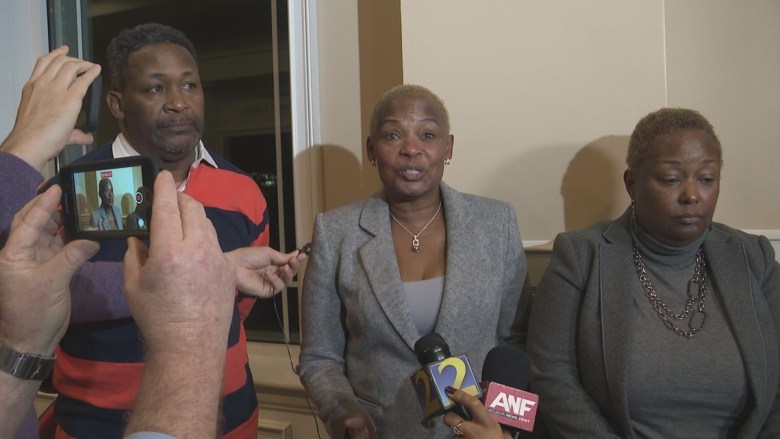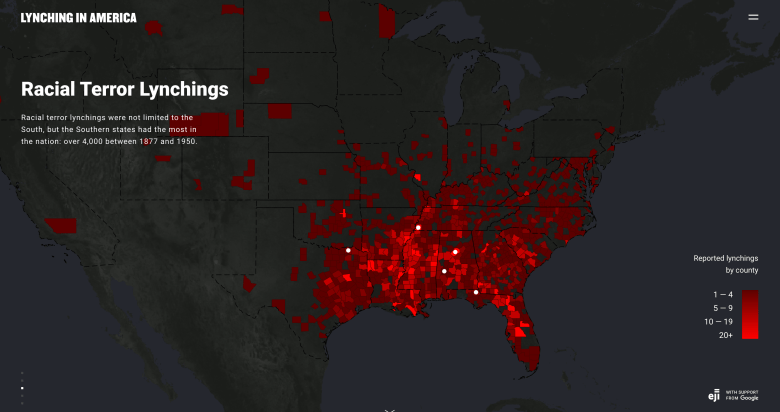|
Listen to this article here
Getting your Trinity Audio player ready...
|
After just two hours of deliberation, a jury in Clayton County, Georgia sentenced 25-year-old Hannah Payne to life in prison with the possibility of parole for chasing down and shooting 62-year-old Kenneth Hearing over a minor car crash.
Media outlets across the nation have framed the deadly dispute as a “citizen’s arrest gone wrong.” They’ve highlighted Payne’s tears in the courtroom.
However, details in the case show it’s highly doubtful Payne, a White woman, had the right to perform a citizen’s arrest in the first place against Hearing, a Black man.

Payne’s decision to chase Hearing and her expectation of support from law enforcement echoes a time of rampant racial terror lynchings in which Payne’s actions would’ve been rewarded with freedom and applause.
Three years after the racist murder of Ahmaud Arbery, Black Georgians continue to face the effects of vigilante killings.”
What happened?
Payne’s conviction and sentencing culminates a years-long court case that began with a minor car crash in 2019.
Driving a Dodge Dakota pickup truck, Kenneth Hearing reportedly ran a red light, resulting in a minor collision with a semi-truck. No one was injured. Payne, who admits she wasn’t involved in the crash, witnessed the event, pulled over, and called 9-1-1.
Payne testified during trial that a corrections officer on the scene said Hearing was “OK, but… definitely inebriated.”
After about 15-20 minutes of staying on the scene, Hearing ultimately drove off. Despite 9-1-1 dispatchers repeatedly advising Hannah Payne not to follow Hearing, she chased him down in her car anyway.
“OK, ma’am we actually do not want you to chase him, we just want you to be safe,” the dispatcher said, according to recordings played in court.

Believing Hearing was drunk, Payne decided it was her responsibility to stop him, telling Judge Jewell C. Scott she saw herself as a messenger for law enforcement.
On the other hand, a state corrections officer testified Hearing showed signs of being in diabetic shock, a condition that impacts Black Americans more than any other ethnicity.
From that point, accounts differ.
Two stories, one verdict for Hannah Payne
Payne testified that she approached Hearing’s car while it was stopped at an intersection. She said she demanded he return to the scene of the accident. He refused to cooperate, became belligerent, and tried to grab her shirt and pull her into the car, Payne testified.
That’s when she pulled out her gun. She claimed she withdrew it as a warning, and when he tried to grab it, the gun went off, killing Hearing.
“As he’s pulling it is when it — the trigger went off,” she continued. “After it went off, my entire body kind of fell backwards.”
Meanwhile, witnesses on the scene paint a different picture. They claim Hannah Payne chased Hearing down, cut him off with her car and “very aggressively” approached his vehicle. She then pulled out her gun, threatening twice to shoot him before pulling the trigger.
“This is not some killer, this is not some murder. She’s some young girl who got caught up in the wrong situation,” Payne’s defense attorney, Matt Tucker, told Judge Scott.
Payne’s claim of self-defense begs a simple question: If Kenneth Hearing had committed a crime that allowed for a citizen’s arrest, why did law enforcement on the scene not go after him themselves?
Two hours after closing arguments, a jury returned a guilty verdict.
“I can’t call him if I wanted to. I can’t visit him if I wanted to,” Kenneth Hearing’s sister Jacqueline said, according to FOX5 Atlanta. “Where he got death without parole. I would like for her to have life without parole.”
Related Stories
- 3 Florida white men kill Black man, judge says possible hate crime
- Why the Montgomery Riverboat brawl is a crucial moment in history
- NYC Mayor Eric Adams downplays lynching of Jordan Neely
- Jacksonville domestic terrorist attack part of anti-Black campaign
Echoes of a brutal history
Payne was convicted of felony murder, malice murder, aggravated assault, false imprisonment, and three charges of weapons possession.
After the sentencing, Clayton County District Attorney Tasha Mosley told FOX5 there wasn’t evidence that race played a factor in the killing. She also mentioned her office was investigating death threats against both families, but she didn’t specify the details of those threats.
“If they get them, we will prosecute them. This is enough. These families have been through enough,” DA Mosley said.
Meanwhile, Hannah Payne’s decision to take action outside the law, her claim of self-defense and her attempts to paint Hearing as the aggressor echo a not-too-distant past.
The Equal Justice Initiative keeps a record of racial terror lynchings targeting Black Americans. The organization has documented over 4,400 vigilante lynchings in the U.S. between 1877 and 1950. At least 595 occurred in Georgia, the second-highest number of lynchings in any state after Mississippi.

Using violence as a tool to maintain a racist class system of oppression, some of the motivations for lynching Black people ranged from accusations of criminal conduct or violations of social norms.
According to EJI:
“Many African Americans who were never accused of any crime were tortured and murdered in front of picnicking spectators (including elected officials and prominent citizens) for bumping into a white person, or wearing their military uniforms after World War I, or not using the appropriate title when addressing a white person. People who participated in lynchings were celebrated and acted with impunity.
Equal Justice Initiative
Ultimately, Hannah Payne never admitted to chasing Hearing down for the purpose of killing him. She never admitted to using law enforcement as a prop for her renegade actions. And she never admitted to an attempt to assasinate Hearing’s character after his killing.
For millions of Black Americans who descend from survivors of a racial caste system, however, the result was still the same.


